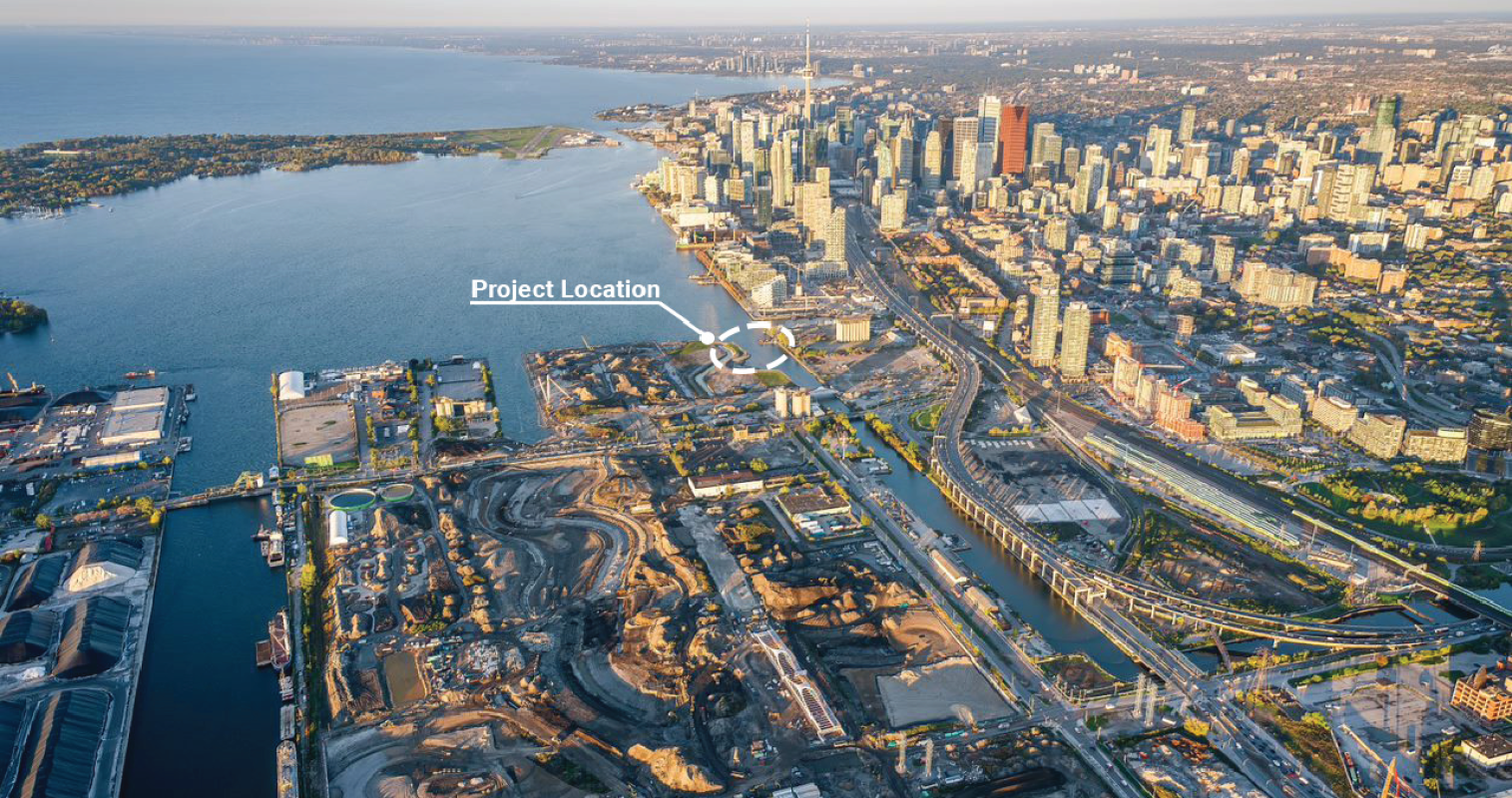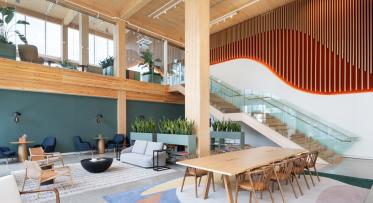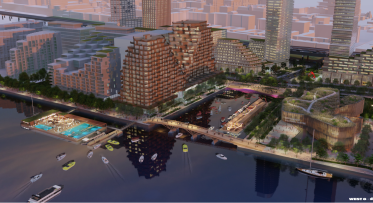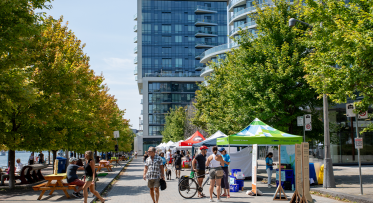Shortlisted Proponents for the Keating Channel Pedestrian Bridge
Keating Channel Pedestrian Bridge location in context.
POSTED: AUGUST 10, 2023
Waterfront Toronto and the City of Toronto in collaboration with Host Nation and Treaty Holder, the Mississaugas of the Credit First Nation, are pleased to announce the shortlist of teams being invited to propose designs for the accessible Keating Channel Pedestrian Bridge.
In May 2023, Waterfront Toronto and its partners issued a Request for Qualifications (RFQ) and received 13 submissions from a variety of local, national and international teams. Following careful evaluation of the submissions, five (5) Proponents have been selected to participate in the Design Competition stage. The shortlisted Proponents are listed in alphabetical order by Lead Firm:
-
Lead Firm: Entuitive
Engineer: Schlaich Bergermann Partner
Architect: Grimshaw Architects
Architect & Indigenous Consultant: Two Row Architect
Landscape Architect: O2 Planning + Design with Michael Van Valkenburgh Associates -
Lead Firm: EXP
Engineer: Buro Happold
Architect: INFORM Studio
Indigenous Consultant: 4 Directions
Landscape Architect: Sprucelab -
Lead Firm: Henning Larsen
Engineer: Ramboll
Architect: Henning Larsen
Indigenous Consultant: Two Row Architect
Landscape Architect: Henning Larsen -
Lead Firm: RJC Engineers
Engineer: Anta Ingeneria Civil
Architect: Smoke Architecture Inc.
Indigenous Consultant: MinoKamik
Landscape Architect: Michael Van Valkenburgh Associates -
Lead Firm: Zeidler Architecture Inc.
Engineer: Arup
Architect: WilkinsonEyre
Indigenous Consultant: Two Row Architect
Landscape Architect: PLANT Architect Inc.
The Keating Channel Pedestrian Bridge will link the Quayside neighbourhood and Toronto’s downtown to an expanded regional park system along the Don River and the emergent Villiers Island. It will contribute to the creation of a continuous and publicly accessible water’s edge along the harbour and play a critical role in providing safe, direct, and equitable access across the Keating Channel.
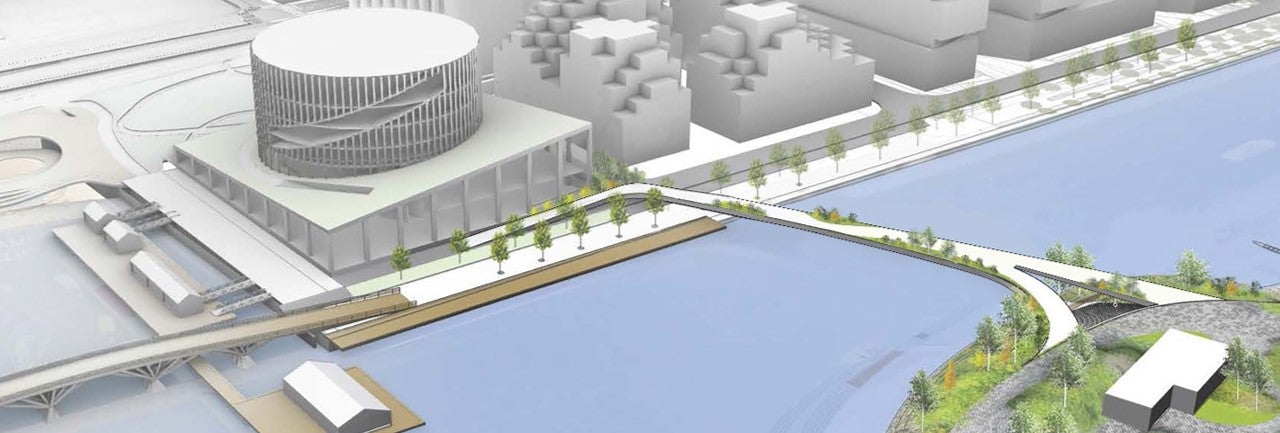
Artist’s rendering of the location of the bridge just east of Parliament Slip, including the future vision for the activation of Parliament Slip (unfunded).
Incorporating Indigenous design principles is key to this project. Together, with the Mississaugas of the Credit First Nation and the City of Toronto, we envision a bridge that meaningfully celebrates local Indigenous arts, cultures, storytelling, histories, and traditions. This initiative also seeks to support Indigenous place-making and place-keeping as a part of a collective re-imagining of public spaces to strengthen the connection between place, community, values, culture, past, present and future.
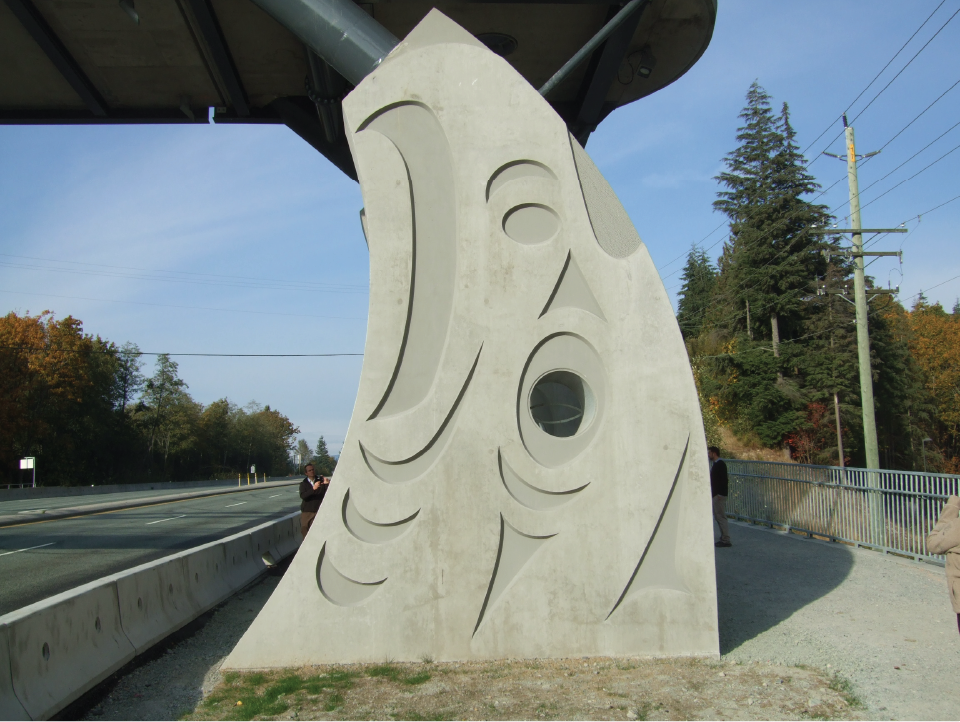
Precedent image, (Xwa-Lack-Tun “Rick Harry.” Squamish, Canada. 2012) “East Side Pier Squamish Overpass” by B.C. Ministry of Transportation and Infrastructure licensed under CC BY-NC-ND 2.0.
For the Design Competition, Shortlisted Proponents are being asked to submit proposals that will be reviewed by an evaluation committee made up of Waterfront Toronto, City of Toronto and Mississaugas of the Credit First Nation staff. Waterfront Toronto anticipates that the successful Proponent will be identified in the fall of 2023.
On behalf of our project partners, we thank all the proponent teams for their interest in this project and for their submissions.
This project is funded, in part, by the Government of Canada.


